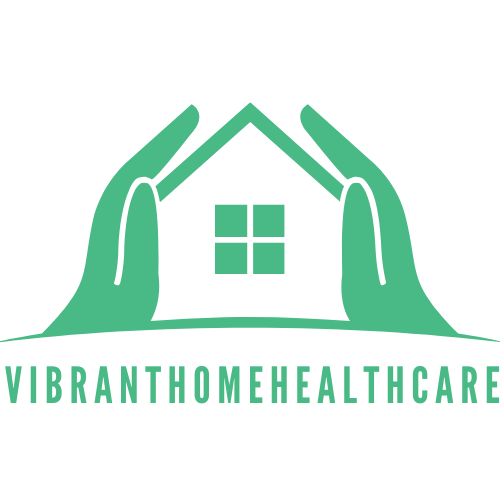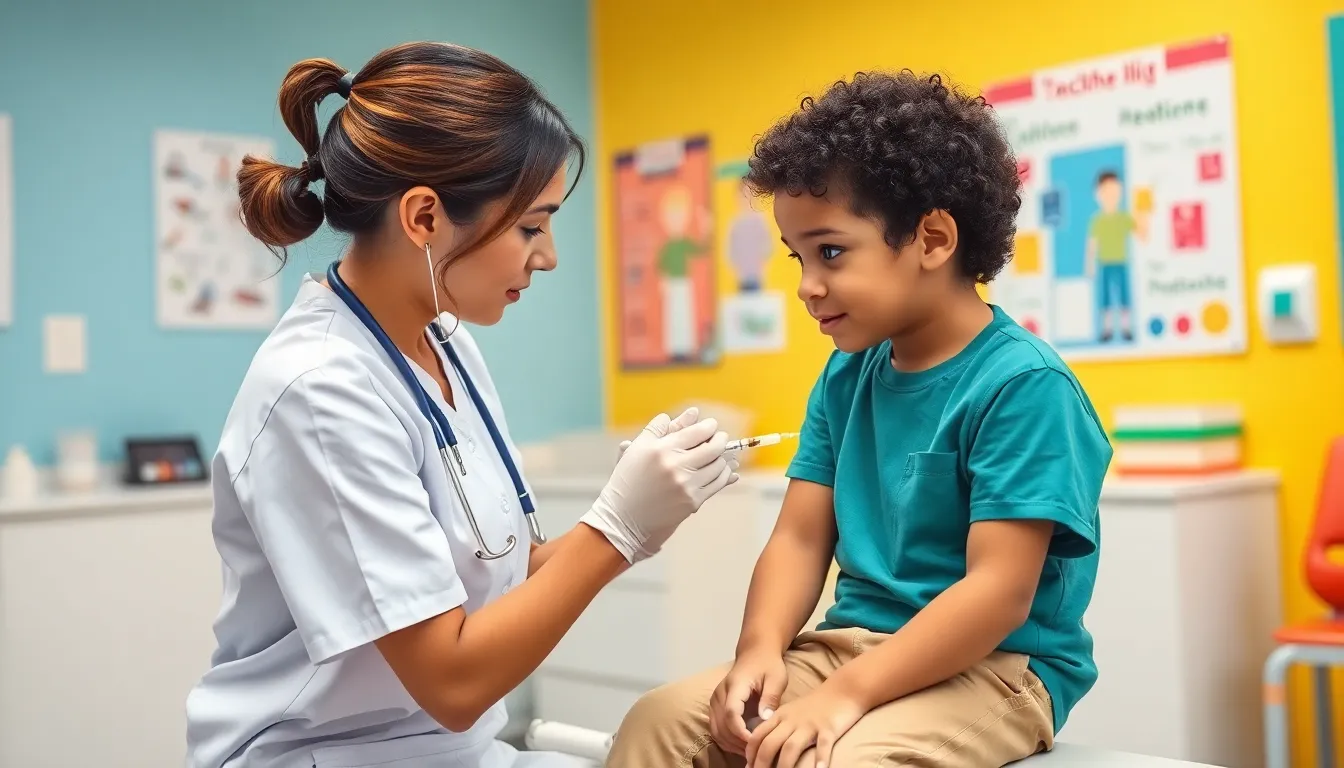Cardiology medical assistants play a vital role in heart health, working alongside cardiologists to provide essential patient care. These dedicated professionals combine clinical expertise with administrative skills while earning competitive salaries in the growing healthcare sector.
The cardiac care field offers promising career opportunities, with cardiology medical assistants earning above-average wages compared to general medical assistants. Their specialized knowledge of heart conditions, ECG procedures and cardiovascular medications makes them invaluable team members in cardiology practices and hospitals. As heart disease remains a leading health concern, the demand for skilled cardiac care professionals continues to rise across the United States.
Table of Contents
ToggleWhat Is a Cardiology Medical Assistant
A cardiology medical assistant specializes in supporting cardiologists during heart-related medical procedures. These professionals combine clinical expertise with administrative capabilities in cardiac care settings like hospitals or specialized heart clinics.
The primary responsibilities of cardiology medical assistants include:
- Recording patient vital signs specific to cardiac health
- Performing preliminary EKG readings
- Scheduling stress tests echocardiograms
- Maintaining patient medical records with cardiac history
- Assisting during cardiac diagnostic procedures
- Processing insurance claims for heart-related treatments
Cardiology medical assistants require specific certifications beyond standard medical assistant credentials:
- Certified Medical Assistant (CMA)
- Certified Cardiac Device Specialist (CCDS)
- Registered Cardiovascular Invasive Specialist (RCIS)
- Basic Life Support (BLS) certification
The role demands specialized knowledge in:
- Cardiac terminology
- Heart anatomy physiology
- Common cardiac conditions
- Cardiovascular medications
- EKG interpretation basics
- Emergency cardiac protocols
These professionals work directly with:
- Cardiologists
- Cardiac nurses
- Heart patients
- Insurance providers
- Laboratory technicians
- Medical equipment specialists
A cardiology medical assistant differs from general medical assistants through their focused expertise in cardiovascular care procedures equipment. Their specialized training enables them to understand complex cardiac diagnostic results assist in heart-specific treatments monitor cardiac patients effectively.
Education and Certification Requirements

Becoming a cardiology medical assistant requires specific educational credentials and professional certifications to demonstrate expertise in cardiovascular care. The path combines formal education with hands-on clinical training focused on cardiac procedures.
Required Education and Training
A high school diploma plus completion of an accredited medical assisting program forms the foundation for a cardiology medical assistant career. These programs take 9-24 months to complete through community colleges, vocational schools or universities. The curriculum includes courses in:
- Cardiac anatomy and physiology
- Medical terminology with cardiology focus
- EKG/ECG interpretation techniques
- Cardiovascular pharmacology
- Clinical procedures for cardiac care
- Medical office administration
- Electronic health records management
Clinical externships provide 160-200 hours of supervised training in cardiology settings like hospitals, heart clinics or cardiology practices.
Professional Certifications
Cardiology medical assistants gain credentials through nationally recognized certification programs:
- Certified Medical Assistant (CMA) through AAMA
- Registered Medical Assistant (RMA) from AMT
- Certified Clinical Medical Assistant (CCMA) via NHA
- Certified Cardiac Device Specialist (CCDS) through IBHRE
- Basic Life Support (BLS) certification from AHA
Additional specialty certifications include:
- Advanced Cardiac Life Support (ACLS)
- Certified EKG Technician (CET)
- Registered Cardiovascular Invasive Specialist (RCIS)
Most employers require renewal of certifications every 2-3 years through continuing education credits related to cardiovascular care.
Typical Job Duties in Cardiology
Cardiology medical assistants perform specialized tasks in cardiac care settings while supporting cardiologists and heart patients. Their duties encompass both clinical procedures and administrative responsibilities.
Clinical Responsibilities
Cardiology medical assistants record vital signs specific to cardiac health including blood pressure, heart rate, oxygen saturation levels. They conduct preliminary EKG readings, prepare patients for stress tests, assist during echocardiograms and monitor cardiac rhythms. These specialists collect blood samples for cardiovascular testing, administer medications under physician supervision and document patient symptoms related to heart conditions. They maintain emergency crash carts, calibrate cardiac monitoring equipment and assist during cardiac procedures like pacemaker checks. Cardiology medical assistants also educate patients about heart-healthy lifestyle modifications, medication schedules and follow-up care protocols.
Administrative Tasks
Cardiology medical assistants manage patient scheduling for cardiac diagnostic tests, consultations and follow-up appointments. They process insurance authorizations for cardiac procedures, verify coverage for cardiovascular medications and handle billing related to heart treatments. These professionals update electronic health records with cardiac test results, maintain inventory of cardiac supplies and coordinate communication between cardiologists and referring physicians. They organize cardiac rehabilitation schedules, document patient progress notes and manage cardiology department compliance records. Cardiology medical assistants also schedule maintenance for cardiac equipment, order medical supplies and coordinate emergency cardiac care transfers when needed.
Average Salary and Compensation
Cardiology medical assistants earn higher salaries compared to general medical assistants due to their specialized cardiac care expertise. Their compensation varies based on experience level, location, certification credentials and workplace setting.
Entry-Level Salaries
Entry-level cardiology medical assistants earn an average base salary of $38,500 per year. The starting pay range spans from $34,000 to $42,000 annually depending on geographic location. Urban hospitals offer entry salaries 15-20% higher than rural clinics. Certified professionals command $2,000-$4,000 more in starting pay versus non-certified candidates. Additional compensation includes medical benefits, paid time off, retirement plans and certification reimbursement.
| Entry-Level Compensation Components | Amount/Range |
|---|---|
| Base Salary Range | $34,000-$42,000 |
| Urban Pay Premium | 15-20% |
| Certification Premium | $2,000-$4,000 |
Experienced Professional Pay
Cardiology medical assistants with 5+ years of experience earn $52,000-$65,000 annually. Top performers in major metropolitan areas command salaries up to $75,000. Advanced certifications like CCDS increase earning potential by $5,000-$8,000 per year. Experienced professionals receive expanded benefits including leadership bonuses, continuing education allowances and increased paid time off. Specialists working in cardiac catheterization labs earn 10-15% more than clinic-based roles.
| Experienced Level Compensation | Amount/Range |
|---|---|
| Base Salary Range | $52,000-$65,000 |
| Maximum Metro Salary | $75,000 |
| Advanced Cert Premium | $5,000-$8,000 |
| Cath Lab Premium | 10-15% |
Factors Affecting Salary
Cardiology medical assistant salaries vary based on multiple key factors. Regional economics, facility type, experience level, certification status, and job responsibilities directly impact earning potential.
Geographic Location
Metropolitan areas offer higher salaries due to increased living costs and greater demand for cardiac care services. Cardiology medical assistants in California earn an average of $52,000 annually, while those in New York reach $49,500. The Northeast region leads with competitive salaries ranging from $45,000 to $58,000. Southern states average $38,000 to $42,000, with Texas offering $44,500. Midwest positions pay between $40,000 to $46,000, reflecting local market conditions.
| Region | Salary Range |
|---|---|
| Northeast | $45,000-$58,000 |
| West Coast | $48,000-$55,000 |
| Midwest | $40,000-$46,000 |
| South | $38,000-$42,000 |
Work Setting
Specialized cardiac care facilities provide higher compensation packages compared to general medical practices. Private cardiology practices offer base salaries of $42,000 to $54,000. Hospital-based positions range from $44,000 to $58,000 with additional shift differentials. Outpatient cardiac centers pay between $40,000 and $52,000. Academic medical centers provide comprehensive benefits packages valued at $5,000 to $8,000 annually. Surgical centers specializing in cardiac procedures compensate assistants from $46,000 to $60,000.
| Work Setting | Base Salary Range |
|---|---|
| Private Practice | $42,000-$54,000 |
| Hospitals | $44,000-$58,000 |
| Outpatient Centers | $40,000-$52,000 |
| Surgical Centers | $46,000-$60,000 |
Career Growth and Advancement
Cardiology medical assistants advance their careers through specialized certifications expanded clinical responsibilities. Obtaining advanced cardiac certifications like Registered Cardiac Electrophysiology Specialist (RCES) or Advanced Cardiac Life Support (ACLS) instructor status increases earning potential by 15-25%.
Leadership opportunities emerge for experienced professionals who demonstrate expertise in:
- Training new cardiac care staff members
- Managing cardiology department operations
- Coordinating cardiac rehabilitation programs
- Supervising EKG laboratory services
| Career Level | Years Experience | Average Salary | Additional Benefits |
|---|---|---|---|
| Entry Level | 0-2 | $38,500 | Basic benefits |
| Mid-Career | 3-5 | $52,000 | +Leadership bonus |
| Senior Level | 6-10 | $65,000 | +Education stipend |
| Department Lead | 10+ | $75,000 | +Administrative bonus |
Many cardiology medical assistants transition into specialized roles such as:
- Cardiac device specialists ($68,000-$82,000)
- Cardiovascular technologists ($72,000-$88,000)
- Clinical research coordinators ($65,000-$80,000)
- Cardiology practice managers ($70,000-$95,000)
Educational advancement paths include pursuing:
- Associate degree in cardiovascular technology
- Bachelor’s degree in healthcare administration
- Specialized cardiac device programming certification
- Advanced cardiac monitoring credentials
- Continuing education programs
- Networking opportunities
- Leadership development workshops
- Research participation
- Mentorship programs
Benefits and Additional Perks
Cardiology medical assistants receive comprehensive benefits packages alongside their base salaries. Medical centers offer health insurance coverage including dental vision options valued at $8,000 to $12,000 annually. Life insurance policies typically provide 1-2x annual salary coverage.
| Benefit Type | Typical Value |
|---|---|
| Health Insurance | $8,000-$12,000/year |
| 401(k) Match | 3-6% |
| CME Allowance | $1,500-$2,500/year |
| PTO Days | 15-25 days/year |
| Sign-on Bonus | $2,000-$5,000 |
Retirement benefits include 401(k) plans with employer matches ranging from 3% to 6%. Professional development allowances cover continuing medical education costs between $1,500 to $2,500 yearly. Paid time off starts at 15 days annually increasing to 25 days with experience.
Many facilities provide additional monetary incentives:
- Performance bonuses tied to patient satisfaction scores
- Shift differentials for evening weekend coverage
- Sign-on bonuses ranging $2,000 to $5,000
- Retention bonuses after 2 5 years of service
- Certification reimbursement programs
Extra perks include:
- Flexible scheduling options
- Remote work opportunities for administrative tasks
- Employee wellness programs
- Discounted medical services
- Professional liability insurance coverage
Leadership roles unlock enhanced benefits packages with executive-level perks profit sharing opportunities disability coverage long-term care insurance options.
Conclusion
A career as a cardiology medical assistant offers exceptional opportunities for those passionate about cardiac care. With competitive salaries ranging from $38500 to $75000 and comprehensive benefits packages the field provides strong financial stability and growth potential.
The specialized nature of cardiac care combined with increasing demand for heart health services makes this career path particularly attractive. Through additional certifications continuing education and leadership roles cardiology medical assistants can significantly boost their earning potential while making meaningful contributions to patient care.
Professional advancement opportunities coupled with attractive compensation packages make this specialized medical assistant role a smart choice for those seeking a rewarding career in healthcare.




